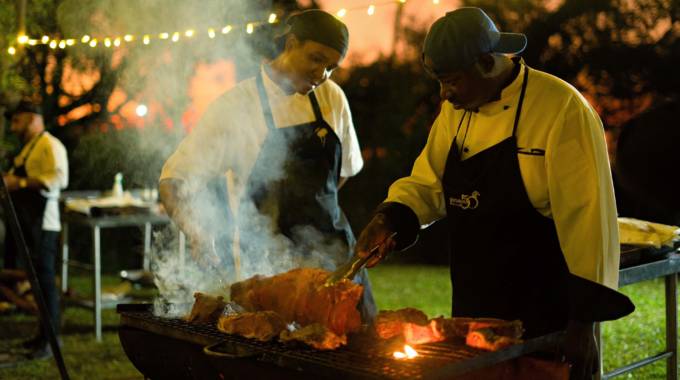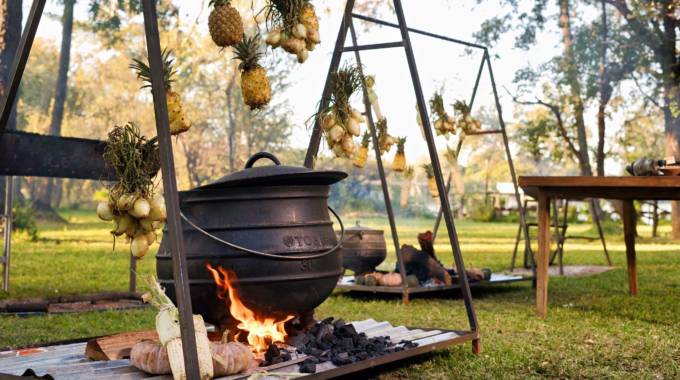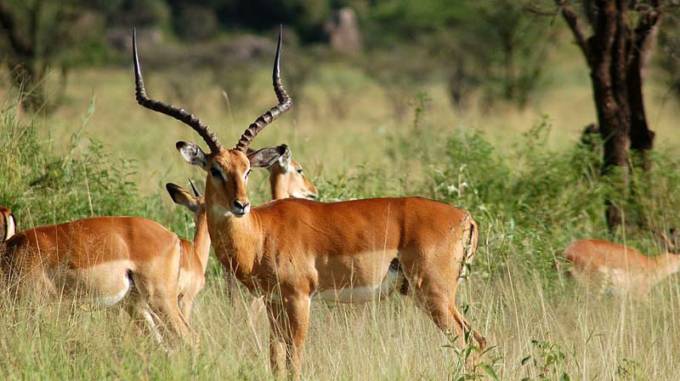
The Sunday Mail

Andrew Moyo
ON Africa Day, Zambezi House in the resort town of Victoria Falls was full of life as it hosted the “Taste of Game” event.
A collaboration between Oppenheimer Generations Research and Conservation with celebrity chef Jan Hendrik van der Westhuizen, the occasion attracted guests from across the globe.

As the name suggests, the event was meant to give attendees a taste of game meat while at the same time creating a platform to discuss the role of wildlife economies in Africa.
Prior to the main event, there was a dialogue on growing Zimbabwe’s wild food market and it also explored existing opportunities.
Cited was a recent Food and Agriculture Organisation (FAO) report on biodiversity and food which noted the importance of wild foods for food security, nutrition and health among other things.
The report also proposed the improvement of the landscape structure and connectivity to provide habitats for associated biodiversity and wild food species.
Upon entering the riverside venue, guests were welcomed by spellbinding scenery where several fires were working their magic on large pots and traditional-style spit roasters.

The menu consisted of eland, warthog, impala and beef among other unique wild delicacies.
Within the fanfare and food tasting, one of the questions that kept on popping up was that of game meat’s availability to the ordinary citizen.
A walk around most butcheries, aside those in tourist resorts, one would be lucky to even get rabbit meat.
Wild food is usually restricted to tourist destinations and specialised eateries.
The meat that was cooked at the “Taste of Game” was sourced at Shangani Ranch with the assistance of professional hunters.
The ranch is a wildlife and cattle establishment that is situated in Matabeleland South specialising in Nkone/Nguni cattle which are indigenous to Zimbabwe.
In an interview with The Sunday Mail Society, Shangani Ranch director Max Makuvise said it was unfortunate that game meat was not being actively marketed in Zimbabwe and Africa at large.
“To ensure that our citizens participate in the wild meat sector, the job at hand is two-pronged,” noted Makuvise.
“We need a massive education drive around the benefits of game meat in order to create consumer demand and we also need to educate businesses in the meat sector to expand their offering to include game meat.
“This is something we have committed to as Shangani Ranch in partnership with Oppenheimer Generations Research and Conservation as well as the African Wildlife Economies Institute.
“We have initiated conversations with the Government to find a way to ensure that our smallholder communities can benefit from this lucrative business that must first and foremost be sustainable.”
The local wildlife population is said to be one of the most diverse and thriving on the continent.
Unfortunately, the number of animals that can be hunted for food fluctuate with weather conditions with some of them being highly migratory.

Impala
However, there are peak seasons for certain plains game when they can be hunted without the fear of compromising population numbers.
Shangani Ranch management principles encourage the interaction of cattle operating side by side with elephant, zebra, eland, giraffe, leopard and hyena among other plains game found in Zimbabwe.“Many wild animals roam freely through our communities and we need to ensure that our people see the economic opportunities of having bountiful wildlife sharing the land with us.
“For example, the Shangani holistic model provides the perfect opportunity for communities and wildlife to thrive, while being financially sustainable.
“Our wildlife is an economic asset which if managed sustainably can contribute to household income and the private sector should partner with community members to ensure a fair and equitable business model that helps both parties within the laws of our land.”



